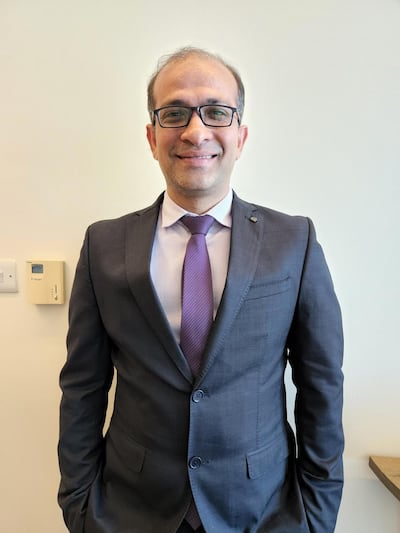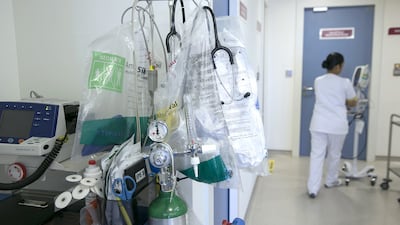All private-sector workers and domestic staff across the UAE must have health insurance paid by their employer from next year, according to a new ruling.
Previously, only employers in Dubai and Abu Dhabi were obliged to pay for their staff's health care.
The ruling marks the establishment of a nationwide standard for health insurance, which was previously left to the discretion of authorities in each emirate. This meant it was optional for workers in the Northern Emirates.
The UAE Cabinet ratified the establishment of the new system "for registered employees in the private sector, and the domestic workers who do not have existing health insurance", according to a statement released by the office of Sheikh Mohammed bin Rashid, Vice President and Ruler of Dubai.
Under the new terms, employers of private-sector staff and domestic workers must pay for health insurance coverage for their workers when issuing or renewing a visa.
The nationwide health insurance rule will be enforced from the beginning of January 2025, the statement said.
Boost for workers
"Up to now it was the case that only employers in Abu Dhabi and Dubai had to provide health insurance for employees when they were issuing or renewing a visa," said Neeraj Gupta, chief executive of insurance comparison site Policybazaar.ae.
"This means that from January, every employer across the UAE will have to do so.
"There are some details that we're waiting to hear about such as whether or not it will apply only to new visas and renewals.
"Or will it also apply to those whose visas still have some time to go before being renewed?"

The move to make mandatory health insurance nationwide was a welcome step, another insurance expert said.
"It places a timely responsibility on both public and private sectors to bring all employees, including the largely underserved domestic workers, into the insurance fold," said Faisal Abbas, vice president of employee benefits and general insurance with The Continental Group.
"All companies and institutions, particularly in the Northern Emirates where insurance penetration is relatively low, must earmark a sizeable dedicated budget for corporate health insurance and ensure all employees are insured comprehensively before the deadline.”
Closing healthcare gap
The move has been hailed as an important step for the Northern Emirates, a leading health expert said.
"While healthcare coverage has been prevalent in Abu Dhabi and Dubai, the Northern Emirates have remained underserved in this regard," said Dr Raza Siddiqui, executive director of Ras Al Khaimah Hospital and chief executive of Arabian Healthcare Group.
"The absence of insurance has posed challenges, with many companies failing to provide essential healthcare services.
"Consequently, individuals have often resorted to seeking inadequate treatment from general practitioners or bearing the financial burden of medical expenses themselves.
"Tragically, some have experienced severe consequences due to delayed medical intervention."
How will it work?

There are three tiers to the new system, a senior official from the Ministry of Health and Prevention told The National.
"The basic package will cost around Dh750 [$204) per year,” said Abdullah Ahmed Ahli, acting assistant undersecretary for the support services sector at the ministry.
"The second package costs Dh3,500 and the advanced package starts from Dh7,500. Each package will have different benefits and all provide extensive health coverage."
The ruling will remove the financial burden from domestic workers and those working in the private sector, he said.
“The health insurance system will provide comfort to the employees and their families knowing they will have proper health care in emergencies or when they fall sick," said Mr Ahli.
"It will boost employees' productivity, which will have a positive impact on companies' performance.
“The system will provide health insurance to every individual regardless of their income level.”
The Ministry of Human Resources and Emiratisation will introduce campaigns and programmes in the coming months to raise awareness and educate employers about the new rules.

What are the current rules about health insurance?
It is currently mandatory by law for employers in Abu Dhabi and Dubai to provide each worker with at least a basic level of health insurance under the Essential Benefits Plan for anyone earning less than Dh4,000 a month.
Anyone earning more can benefit from a broader health insurance plan provided by an employer, offering access to more hospitals and services, such as dental and optical coverage.
Basic coverage in Abu Dhabi gives workers access to Dh250,000 of care but pharmacy expenses are capped at Dh1,500 a year.
In Dubai, the annual limit provided by basic care is Dh150,000, with a pharmacy limit of Dh1,500.

